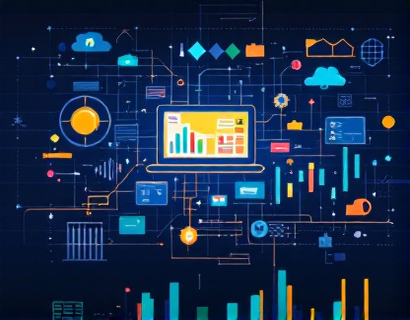Exploring Premier Innovations in AI Services for Industry Transformation
In an era where technology is rapidly reshaping the business landscape, artificial intelligence (AI) stands out as a pivotal force driving innovation and efficiency across various sectors. The AI services showcase serves as a comprehensive platform, bringing together industry leaders and innovators to present the latest advancements in AI technology. This article delves into the transformative potential of these premier AI solutions, designed to enhance productivity and foster success for tech enthusiasts, developers, business leaders, and forward-thinking professionals.
The landscape of AI is vast and diverse, encompassing a wide range of applications from machine learning and natural language processing to computer vision and robotics. Each of these domains offers unique opportunities for businesses to streamline operations, gain insights from data, and create more intuitive and efficient products and services. The AI services showcase provides a curated environment where these cutting-edge solutions are presented, allowing professionals to explore, compare, and integrate the technologies that best suit their specific needs.
Enhancing Productivity with AI
One of the most significant benefits of AI services is their ability to boost productivity. Automation of repetitive and time-consuming tasks is a prime example. By leveraging AI-driven automation tools, businesses can reduce manual labor, minimize errors, and free up human resources to focus on more strategic and creative work. For instance, AI-powered chatbots can handle customer inquiries around the clock, providing instant responses and improving customer satisfaction without the need for a large customer support team.
Moreover, AI can optimize workflows and processes through intelligent scheduling and resource allocation. Machine learning algorithms can analyze historical data to predict the most efficient ways to complete tasks, leading to significant time savings and cost reductions. In manufacturing, for example, AI can optimize production lines, predict maintenance needs, and reduce downtime, thereby enhancing overall productivity.
Driving Success through Data Insights
Data is the new oil, and AI is the engine that extracts valuable insights from it. AI services that focus on data analytics and business intelligence enable businesses to make informed decisions based on real-time data. Advanced analytics tools can process vast amounts of data from various sources, identifying patterns, trends, and insights that would be impossible for humans to discern manually. This capability is particularly valuable in industries such as finance, healthcare, and retail, where data-driven decisions can lead to significant competitive advantages.
Predictive analytics is another key area where AI shines. By using historical data and machine learning models, businesses can forecast future trends and behaviors, allowing them to proactively adjust their strategies. For example, in the retail sector, AI can predict consumer demand, optimize inventory levels, and personalize marketing campaigns, leading to increased sales and customer loyalty.
Innovations in AI for Industry Transformation
The healthcare industry is one of the sectors most impacted by AI innovations. AI-powered diagnostic tools can analyze medical images with high accuracy, assisting doctors in early detection and treatment of diseases. AI-driven personalized medicine tailors treatments to individual patients based on their genetic makeup and medical history, improving outcomes and reducing side effects. Additionally, AI can streamline administrative tasks, such as scheduling and patient management, allowing healthcare professionals to focus more on patient care.
In the automotive industry, AI is revolutionizing the development of autonomous vehicles. Advanced sensors and machine learning algorithms enable cars to perceive their environment, make decisions, and navigate safely. This not only promises to increase road safety but also transform the way people commute and transport goods. AI-driven predictive maintenance for vehicles can further enhance efficiency by identifying potential issues before they lead to breakdowns.
AI for Environmental Sustainability
AI is also playing a crucial role in addressing environmental challenges. Smart energy management systems use AI to optimize energy consumption in buildings and cities, reducing waste and lowering carbon footprints. AI-powered monitoring systems can track environmental conditions, detect anomalies, and predict natural disasters, enabling timely interventions to mitigate damage. In agriculture, AI can optimize resource use, such as water and fertilizers, through precision farming techniques, leading to more sustainable and productive agricultural practices.
Furthermore, AI can aid in conservation efforts by analyzing satellite imagery to monitor deforestation, track wildlife populations, and identify areas in need of protection. These applications demonstrate how AI can be a powerful ally in the fight against climate change and environmental degradation.
Challenges and Considerations
While the potential benefits of AI are immense, there are also challenges and considerations that must be addressed. One of the primary concerns is the ethical use of AI. Ensuring that AI systems are transparent, fair, and do not perpetuate biases is essential. Businesses and developers must prioritize ethical AI practices, conducting regular audits and implementing robust governance frameworks.
Another challenge is the need for skilled professionals who can develop, implement, and maintain AI systems. The demand for AI talent is growing rapidly, and organizations must invest in training and development programs to build a capable workforce. Collaboration between academia and industry can help bridge the skills gap and foster innovation.
Integrating AI into Your Business
For businesses looking to integrate AI services, the first step is to identify areas where AI can add the most value. Conducting a thorough assessment of current processes and workflows can highlight opportunities for automation and data-driven insights. It's important to start with clear objectives and a well-defined strategy, rather than adopting AI for its own sake.
Collaborating with AI service providers and leveraging their expertise can accelerate the integration process. These providers often offer tailored solutions that can be customized to meet specific business needs. Additionally, staying informed about the latest AI trends and advancements through industry conferences, research papers, and online resources can help businesses stay ahead of the curve.
Ultimately, the key to successful AI integration is a combination of strategic planning, technological expertise, and a commitment to continuous improvement. By embracing AI, businesses can unlock new levels of efficiency, innovation, and growth, positioning themselves for success in an increasingly competitive landscape.










































